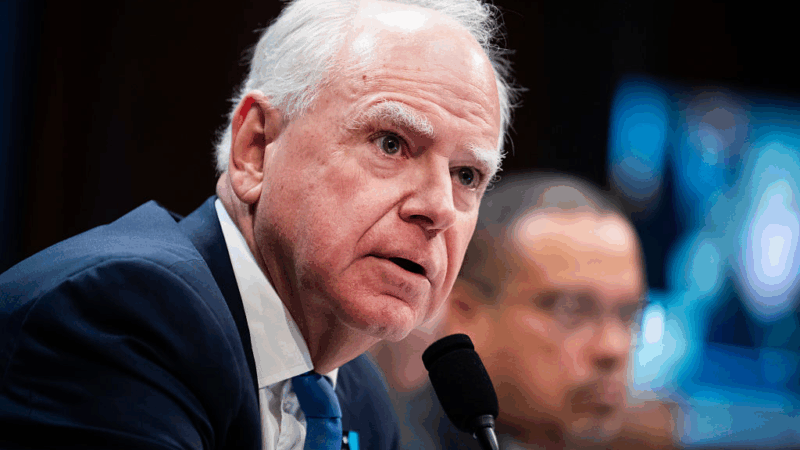4 people and 5 months in space, NASA’s Crew-10 mission safely returns to Earth
A crew of four wrapped up a nearly five-month stay on the International Space Station, splashing down in the Pacific Ocean off the coast of California under a canopy of parachutes Saturday in the same SpaceX capsule that launched NASA’s Crew-10 mission to the station back in March.
It took the capsule about 17 hours to make the trip home, experiencing re-entry temperatures of around 3,000 degrees Fahrenheit as it punched through the atmosphere following Friday’s undocking with the ISS.
The crew of NASA astronauts Anne McClain and Nichole Ayers, Japan Aerospace Exploration Agency (JAXA) astronaut Takuya Onishi, and Russia’s Roscosmos cosmonaut Kirill Peskov spent their time on the station conducting more than 200 science experiments that helped prepare humans for exploration beyond low-Earth orbit that included material studies and experiments to better understand physiological and psychological changes to the human body.
“We got to accomplish a lot of really amazing operational things. We got to see some amazing views, and we have had some really big belly laughs and a wonderful time together,” said NASA Nichole Ayers, the mission’s pilot.
It was the first space mission for Ayers and fellow crewmate Peskov. It was the second trip to the station for McClain and Onishi.
Their replacements, Crew-11, arrived at the station a week ago. NASA astronauts Zena Cardman and Mike Fincke, along with JAXA astronaut Kimiya Yui and Russian cosmonaut Oleg Platonov, will spend roughly six months on the orbiting lab conducting science experiments and maintenance.
That mission marked the 12th time SpaceX launched NASA astronauts to the ISS. In 2020, the private company began ferrying astronauts to the station as part of the agency’s Commercial Crew Program, ending a reliance on Russia for rides to the station after the retirement of the Space Shuttle program in 2011.
There has been a continual human presence on the space station since Oct. 31, 2000, but NASA and its international partners plan to retire the ISS around the end of the decade. NASA is hoping commercial companies will launch new space stations for the agency’s astronauts in the coming decade.
“All of us are keenly aware that we may never get to do this again,” said McClain, Crew-10 commander, before her departure. “We’ve been very pensive over the last days of understanding what we have all got to be a part of.”
U.S-Israeli strikes continue across Iran, Iranian drones hit Azerbaijan
The U.S. and Israel said they conducted new strikes inside Iran overnight, targeting ballistic missile launchers. Iran claimed it struck a U.S. oil tanker in the northern Persian Gulf.
In lawsuit, Minnesota accuses Trump administration of ‘weaponizing’ Medicaid funding
The federal government said the state should do more to fight fraud and is holding back funds. Minnesota officials say the attack is unfair as the state's fraud rate is well below national averages.
Wall Street is betting on tariff refunds after Supreme Court ruling
When the Supreme Court struck down many of President Trump's tariffs, it left importers wondering how long they'd have to wait to get their money back. Hedge funds are offering to help out.
Announcing the 2025 NPR College Podcast Challenge Honorable Mentions
Here are some of the best entries in NPR's 2025 College Podcast Challenge.
When ICE came, Minneapolis created underground health networks. Should other cities?
The Trump administration's immigration crackdown in Minneapolis forced some families into hiding and catalyzed informal medical networks to deliver critical health care services inside homes.
A run for their money: Young candidates rival older incumbents in midterm fundraising
As a growing crop of young candidates challenge longtime Democratic incumbents, some are not just breaking through in the money race, but outraising their opponents altogether.







